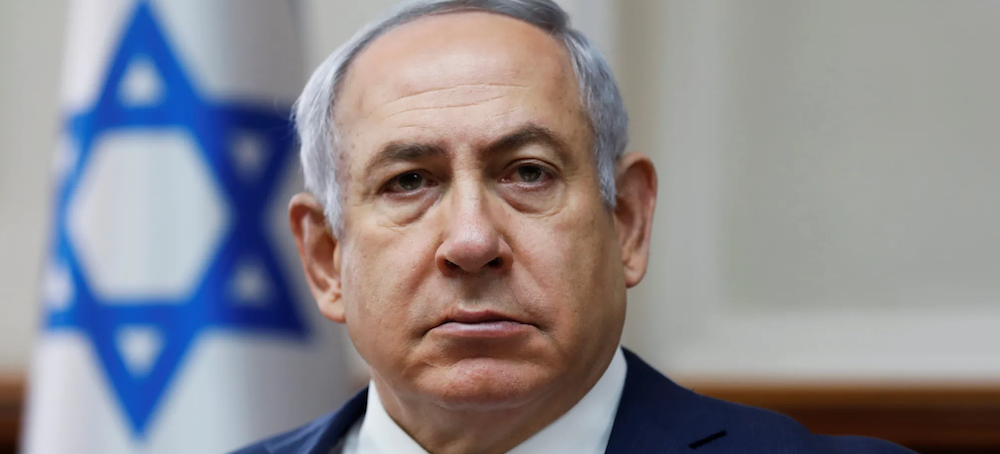Netanyahu Put Israel on a Collision Course With America. The UN Cease-Fire Vote Is the Dire Result
Alon Pinkas Haaretz Israeli Prime Minister Benjamin Netanyahu. (photo: Brookings)
Israeli Prime Minister Benjamin Netanyahu. (photo: Brookings)
We have repeatedly written since last November that this would happen, and the U.S. warned Israel incessantly it was in the cards. Israel ignored the threats and is now disingenuously pretending to be surprised and shocked
No one should be surprised by this. We have repeatedly written since last November that this would happen, and the U.S. warned Israel incessantly it was in the cards. Israel ignored the threats and is now disingenuously pretending to be surprised and shocked.
When you ignore U.S. requests, dismiss a president's advice, inundate the secretary of state with endless spin, casually deride American plans, exhibit defiance and intransigence by refusing to present a credible and coherent vision for postwar Gaza, and actively pursue an open confrontation with the administration – there's a price to pay.
Alongside his unwavering and unconditional support, President Joe Biden warned Israel that there are also consequences. Vice President Kamala Harris followed suit, as did Secretary of State Antony Blinken on numerous occasions since October 7.
Most recently, Senate Majority Leader Sen. Chuck Schumer publicly warned Israel of the ramifications of Prime Minister Benjamin Netanyahu's patterns of behavior and imprudent policies.
Seriously engaging the U.S. on any of the above issues, without necessarily agreeing to everything, would have prevented the current deep (and deepening) rift. However, Mr. Netanyahu deliberately preferred a showdown with the world and the United States. He managed to turn a just war and an imperative, justifiably harsh retaliation into world condemnation.
The U.S.' decision to abstain, refraining from vetoing a cease-fire vote for the first time since October 7, puts substantial added political pressure on Israel and increases its already dire state of isolation in two arenas: the Security Council itself, and relations with the United States.
In terms of the Security Council, Israel will conveniently tell itself that the resolution is not a big deal, there will be no sanctions, the sun will shine today and, besides, the UN was always and remains anti-Israel.
Perhaps. But that's not the point. A Security Council resolution binds all UN members. Furthermore, it requires that council member-states assist in the implementation of any adopted resolution. That doesn't mean sanctions, but it is a very unpleasant place for any country – let alone a democracy, not to mention a U.S. ally – to be in.
The more significant arena is U.S.-Israeli relations. Their deterioration under Mr. Netanyahu has been written about extensively and profusely over the past year, but the Security Council resolution is a new low.
Most recently, Blinken warned Israel of an impending isolation that it is living in defiant and unwise denial of. "The Israelis seemed oblivious to the fact that they are facing major, possibly generational damage to their reputation not just in the region but elsewhere in the world. … We are concerned that the Israelis are missing the forest for the trees and are making a major strategic error in writing off their reputation damage," wrote Assistant Secretary of State Bill Russo, the official overseeing global public affairs in the State Department, in a memo leaked to NPR.
For the past four months, the United States has negatively revised its assessment of Israel under Netanyahu: He does not behave as an ally. He has accrued a debilitating credibility deficit over the years on a multitude of issues and behavioral patterns. He failed to come up with a plan for postwar Gaza – and he is seriously suspected of prolonging the war for his own political survival.
His ongoing recalcitrance finally exhausted America's patience.



